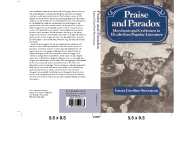Book contents
- Frontmatter
- Contents
- Acknowledgements
- Prefatory note
- Introduction: praise and paradox
- PART I ELIZABETHAN POPULAR LITERATURE
- PART II THE BUSINESSMAN IN ARMOUR
- 4 Principal citizens and chief yeomen
- 5 The merchant as usurer: a stock image in decline
- 6 The merchant as knight, courtier and prince
- 7 Lessons in diligence and thrift
- PART III THE GENTLE CRAFTSMAN
- APPENDICES
- Index
- Past and Present Publications
5 - The merchant as usurer: a stock image in decline
Published online by Cambridge University Press: 29 October 2009
- Frontmatter
- Contents
- Acknowledgements
- Prefatory note
- Introduction: praise and paradox
- PART I ELIZABETHAN POPULAR LITERATURE
- PART II THE BUSINESSMAN IN ARMOUR
- 4 Principal citizens and chief yeomen
- 5 The merchant as usurer: a stock image in decline
- 6 The merchant as knight, courtier and prince
- 7 Lessons in diligence and thrift
- PART III THE GENTLE CRAFTSMAN
- APPENDICES
- Index
- Past and Present Publications
Summary
If one were to take seriously the portraits of mercantile activity which appeared in Elizabethan sermons and moral pamphlets, one would be forced to believe that the merchant's primary concern was lending money at an extortionate rate of interest. The moralists did not, of course, single out the financier as the only member of society who had chosen Mammon over God; they pointed out that the usurer kept evil company with the rack-renting landlord, the corrupt magistrate, the greedy lawyer, and the pluralist clergyman. One may doubt that Elizabethan readers seriously thought that all merchants were usurers, any more than they thought all gentlemen were greedy landlords. But in literary terms, the gentleman had an advantage over the merchant because he had alternate images as knight, courtier and governor, whereas the merchant's image, until quite late in Elizabeth's reign, was determined almost exclusively by the moralists. A few chroniclers might insert the good deeds of merchants in their works, but until these good deeds started to be portrayed on the stage, the merchant was most familiar to Elizabethans as a man who beggared the poor in order to enrich himself, a godless man who went to church only to arrest debtors, and a miser who thought only of his money on his deathbed.
In the middle of Elizabeth's reign, however, a statute was passed which complicated the moral context in which the stock merchantusurer appeared.
- Type
- Chapter
- Information
- Praise and ParadoxMerchants and Craftsmen in Elizabethan Popular Literature, pp. 92 - 106Publisher: Cambridge University PressPrint publication year: 1984

